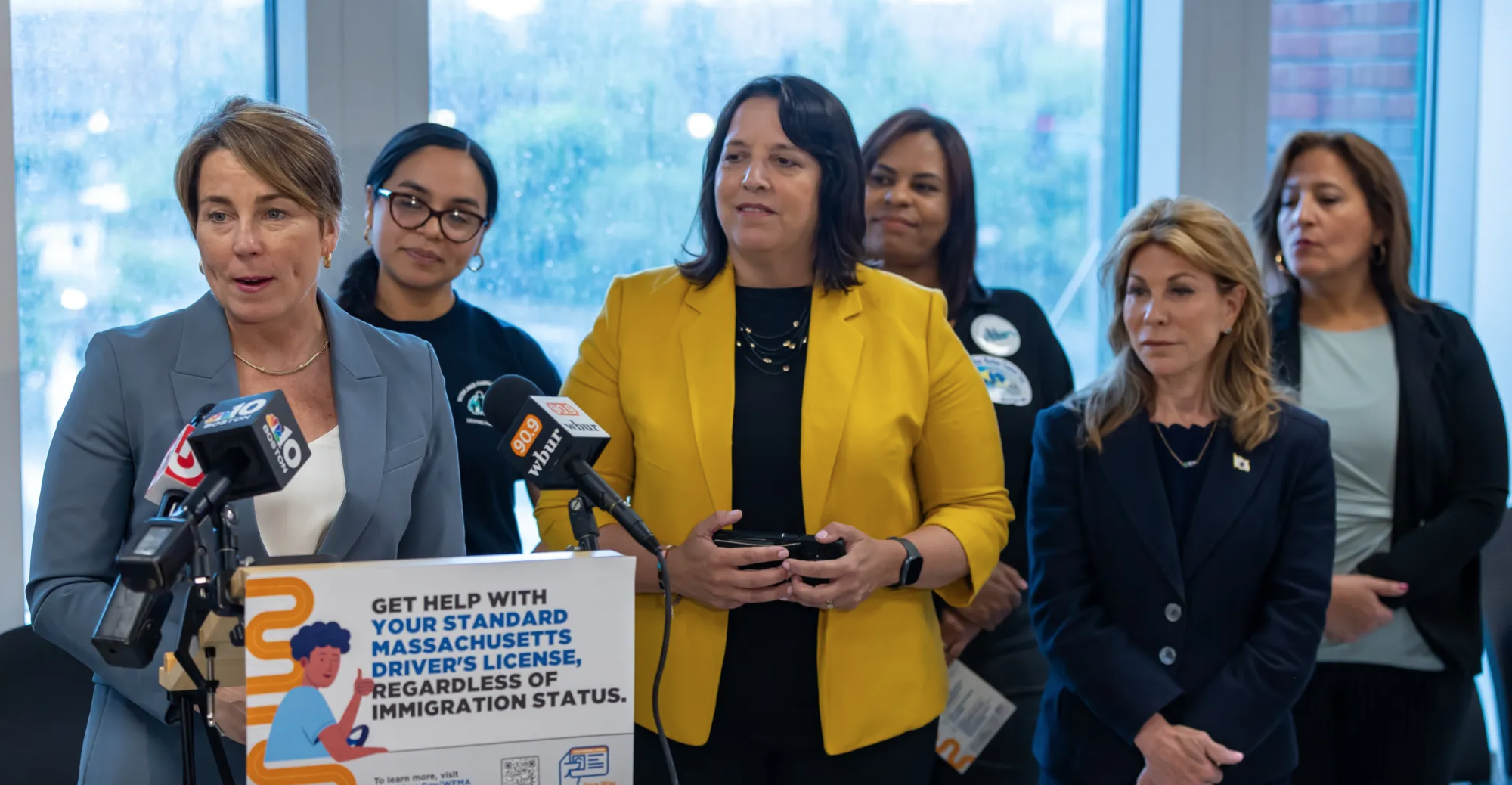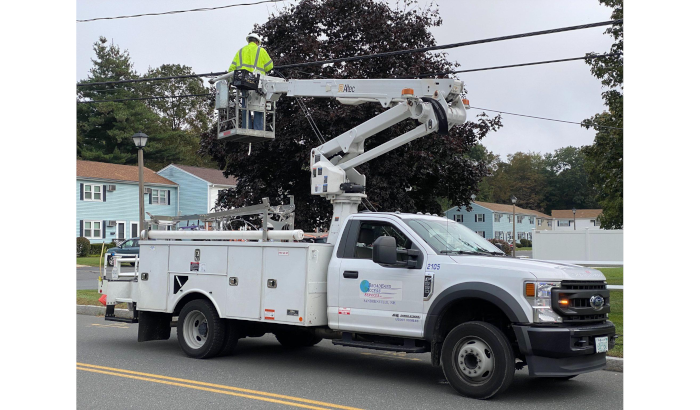Under a new law, undocumented immigrants can get a driver’s license. But bureaucratic language barriers still stand in the way.
PITTSFIELD — There is a certain Catch-22 madness to the bureaucracy surrounding the Massachusetts Registry of Motor Vehicles’ accessibility outreach to non-English speakers.
To begin the process of applying for a driver’s license, the first form applicants must fill out, which is to join a waitlist to get an appointment, asks them what their preferred language is. The question, as well as the rest of the form, is in English. So, too, is the email confirming they are on the waitlist. As is the email asking them to schedule an appointment. As is the webpage they are sent to after clicking the email’s link.
Only after they have successfully translated all the above steps do they receive an appointment confirmation in the language they selected.
Those language barriers are standing tall at a moment when thousands of immigrants across the state are attempting to get a license for the first time. As of July 1, any Massachusetts resident can apply for a driver’s license under a new state law passed last year that allows undocumented immigrants that right. During the planning and rollout phase of the law, both immigration advocates and officials at the RMV spoke about expanding language accessibility.
Despite these promises, though, the process is still hard to navigate for non-English speakers.
I reported on the law — known as the Work and Family Mobility Act — two times before it went into effect. Every time, RMV officials patted themselves on the back for all the languages they were able to offer. The driver’s manual was translated in 15 more languages, for example, and the learner’s permit test would be available in 34.
Several advocates who worked with the RMV or had campaigned in favor of the law agreed that there was a good faith effort to uphold language justice by providing equal access to speakers of minoritized languages.
Two months into the law’s implementation, however, other advocates and I are seeing firsthand how the RMV is failing to provide language justice at a much more basic level.
I work as a community navigator at Central Berkshire Habitat for Humanity, where I help people navigate community programs while retaining their agency. The RMV’s licensing process has so many language barriers that I must handhold otherwise capable adults through the application process.
These language barriers add unnecessary frustrations to an already challenging process. Immigrants seeking their license must already pass the learner’s permit exam, pass the road test and navigate confusing insurance policies. Doing any of these is hard enough if you understand English fluently; people with limited or no fluency can find it nearly impossible without help. Further complicating matters are the varying technological literacy levels in the immigrant community.
In Northampton, Leninn Torres, lead community organizer at the Pioneer Valley Workers Center, said that there is an urgency among people to get their driver’s licenses quickly.
The PVWC is helping people register for the waitlist. But they’ve also observed that the email people get to book an appointment is not only in English but also expires. If somebody doesn’t click the link in the email after 12 to 24 (sometimes 72) hours, they must register again for the waitlist, according to Torres.
“It does not give much time for people who don’t speak the language,” Torres said. “And if [an interpreter] is not available at the moment, they may lose the opportunity to follow up with the process.”
If filled out incorrectly, some of these forms don’t just carry the consequence of redoing them.
One question on the application form — also only offered in English — asks if applicants would like to be registered to vote, something only U.S. citizens can do. Falsely stating you are a U.S. citizen for the purposes of voting can result in a fine of up to $10,000 and/or five years in prison, according to state law.
When asked about this, Colleen Ogilvier, the state’s Registrar of Motor Vehicles, said “there were some limits for us to be able to provide that service in the different languages.” When asked to elaborate, Ogilvier alluded to “technical issues” and asked to follow up through email.
“MassDot is planning to research how to improve the language accessibility of digital services for non-English speaking customers,” Olgilvier said in her follow-up email. “This scope analysis will begin in September.”
I told that to a client on the way to her RMV appointment. She asked why they were waiting that long to improve the process.
Laura Rótolo, the field director of the American Civil Liberties Union of Massachusetts, says that there is a learning curve. Rótolo, who is also part of the executive committee of the Driving Families Forward coalition that advocated for the new law, noted there has been some progress in accessibility since now emails in English also include links to translations.
“We have made progress and there’s still progress to be made,” she said. “We’re seeing hiccups and issues at different offices and we’ve been able to bring those directly to the RMV.”
The RMV, though, appears not to be meeting its mandate of accessibility in other areas as well.
When asked about their current accessibility tools in an email, the RMV said that they have a file on their website with instructions on how to fill out this form in multiple languages. In the last few months, it has hired 79 new customer service representatives, but is unable to provide a specific number of those new hires who are bilingual. According to the RMV, this information is voluntary and not tracked by the department.
In the Berkshires, the RMV offices in Pittsfield and North Adams have no one who speaks Spanish, the second-most common first language in the United States. Between July 1 and 26, the RMV paid for a group of bilingual advocates to stand in front of the RMV and help people fill out forms and get on the waitlist. That’s over now. There is only one person who speaks Portuguese in Pittsfield. While Spanish and Portuguese are close enough that some people manage to make themselves understood, a single employee with partial comprehension is not the accessibility that the state promised.
That leads to situations like a Salvadoran man being given a form in Portuguese. On another recent appointment, a middle-aged woman asked for translation and was handed out a tablet to figure it out herself. Both of these incidents happened to Habitat for Humanity clients at Pittsfield’s RMV.
Ogilvier said that since this spring, every counter spot has a telephone through which the representative should call an interpreter. The Springfield RMV does have more bilingual staffers, but that does not help those who cannot get to Springfield.
Getting a driver’s license is a way to be more autonomous in western Massachusetts, live with less fear of deportation, find a higher paying job and maybe live life not in survival mode. Making sure everybody is correctly licensed to drive is also a road-safety issue. And it’s not a good sign that the first step in this process is hard to do on your own when you speak limited English.
This article originally appeared at theshoestring.org. It is syndicated by the MassWire news service of the Boston Institute for Nonprofit Journalism.




